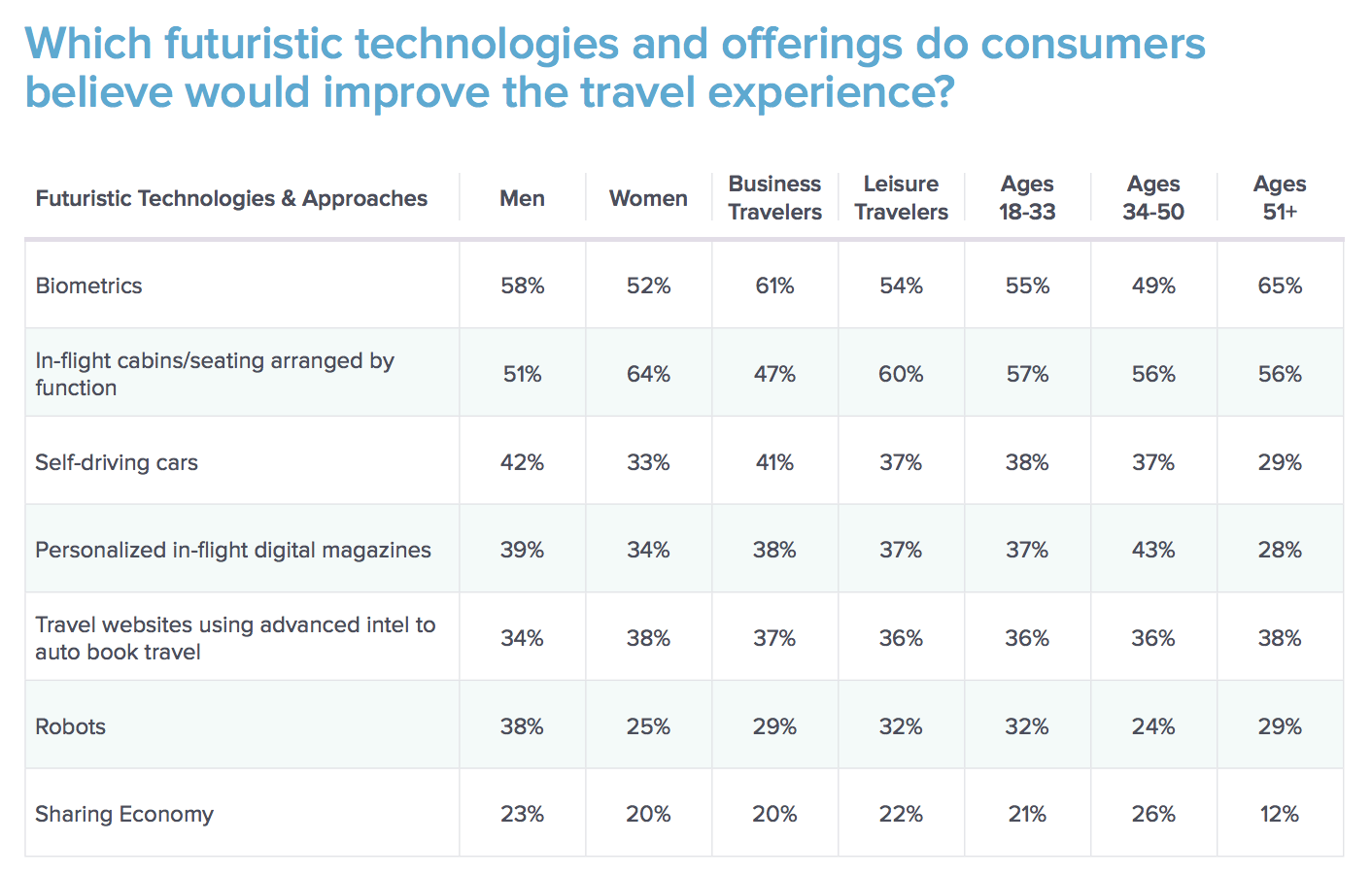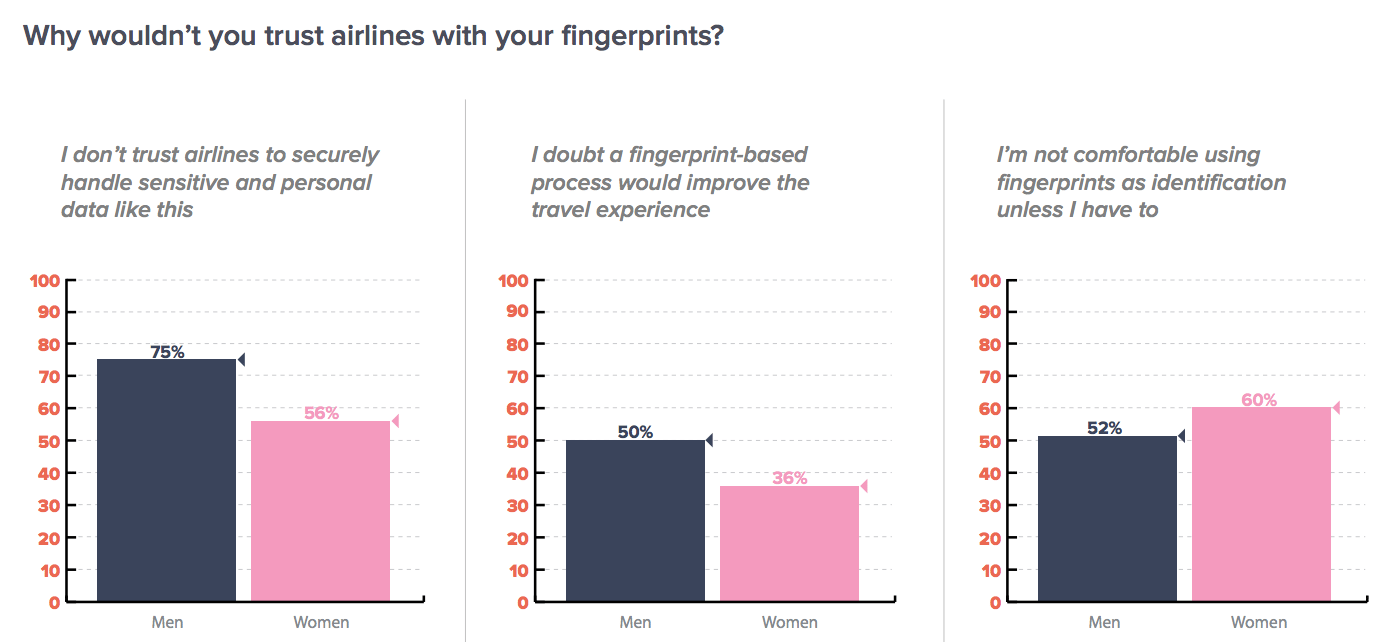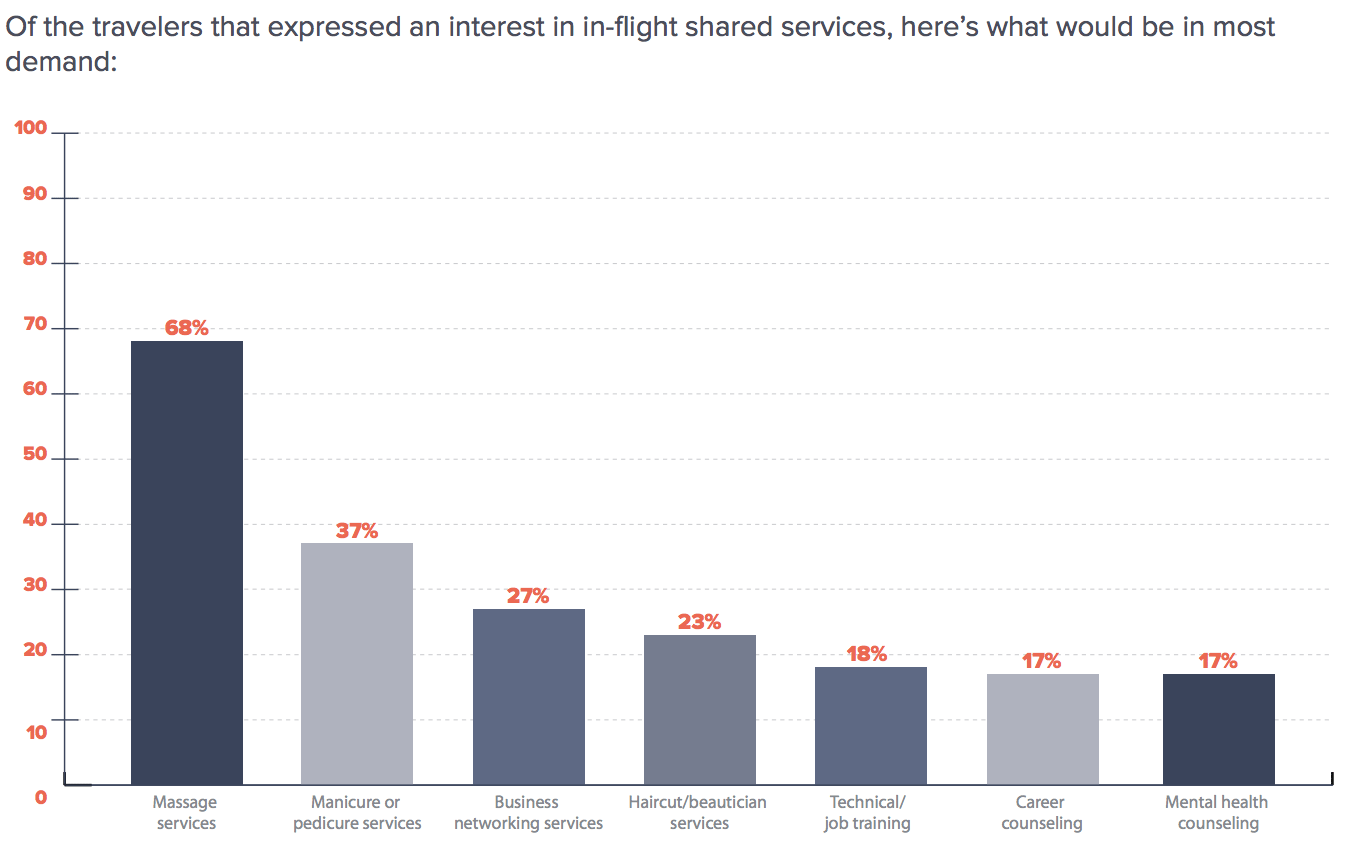Skift Take
As travelers hear about terror attacks and threats that likely influence how they feel about handling their own safety and personal information, airlines gave travelers plenty of reasons to doubt their proper use of biometrics long before a worldwide travel alert was issued.
Even as many airlines wager what the future looks like for in-flight entertainment, boarding or security and attempt to get ahead of trends, travelers aren’t willing to follow when that future-forward approach involves their identities.
Fewer than 50% of respondents would trust an airline with biometric identification information such as fingerprints or facial recognition, according to Boxever, a company helping travel brands use Big Data and enhance personalization strategies, which surveyed more than 500 U.S. travelers earlier this year for their thoughts on the future of air travel. What’s more revealing: nearly half (49%) of respondents who don’t trust airlines with biometrics also said they doubt airlines possessing such information would actually improve the travel experience.
Millennials, or respondents aged 18 to 33, returned the lowest percentage of support for biometrics (see chart below) compared to travelers aged 51 and older who were most supportive. All age groups surveyed had nearly identical percentages of support for in-flight seating arranged by their purpose for flying or what they want to do in-flight.
“Millennials have grown up in an age of constant data breaches, making them more cautious and less willing to share sensitive information,” said Dave O’Flanagan, CEO of Boxever. “Millennials are also constantly inundated with information grabs. From mobile apps and social media to e-commerce sites and other digital channels, every day consumers are being asked to share data and personal information. The issue is millennials rarely see a return in terms of value and personalization, which makes them less willing to share information in the future.”
“Boxever’s last survey found that 55% of consumers said three out of four travel offers they receive are irrelevant to their needs and preferences. That’s always a shocking stat for me, considering all the information that brands collect. If airlines and traveler providers focused on levering the information they aggregate to provide a more personalized and relevant digital and day-of-travel experience for their customers, they would start to earn back trust.”
The survey also asked respondents to elaborate on their choices, and one respondent wrote that “I can’t change my biometrics when they’re hacked” while another traveler argued “it would take the same time to scan the boarding pass as it would to scan my fingerprint.” The following charts depict a traveling population weary of the future of airline security and largely indifferent about other possible in-flight technology advances.
Chart 1: A higher percentage of business travelers than that of leisure travelers said biometrics would improve the travel experience, and a higher percentage of leisure travelers than business travelers said arranging cabin seating by business travelers, families, sleep and entertainment would improve flying. Business travelers value efficiency and punctuality which helps explain their responses for biometrics, and perhaps they were lower than leisure travelers in supporting cabins arranged by function as many likely fly in business class anyway.
Chart 2: According to the survey, men are more trusting of airlines using biometrics securely and that it would improve travel, but if biometrics such as fingerprints were required of travelers women are slightly more comfortable than men with letting airlines have this information.
Chart 3: Travelers are simply looking to relax during a flight and not necessarily seek networking opportunities or some other kind of service that they would get regularly get on the ground. Massage services, for example, received the highest percentage of interest from respondents (68%).
Source: Boxever
The Daily Newsletter
Our daily coverage of the global travel industry. Written by editors and analysts from across Skift’s brands.
Have a confidential tip for Skift? Get in touch
Tags: biometrics, boxever, in-flight
Photo credit: A passenger using a smartphone to connect to in-flight wi-fi. Skift


